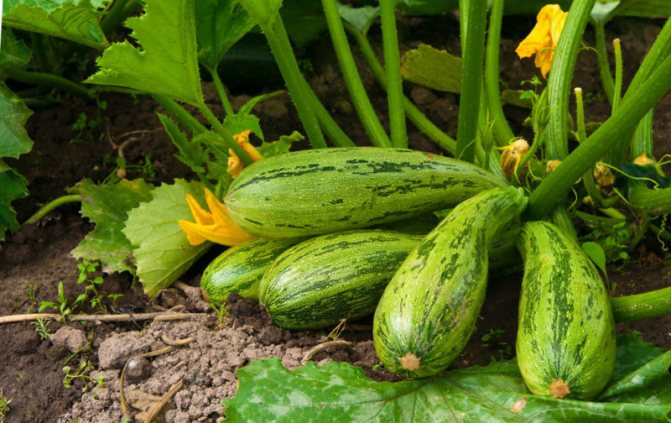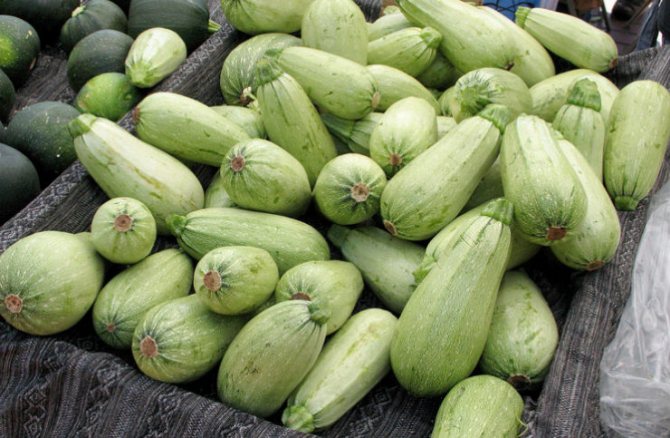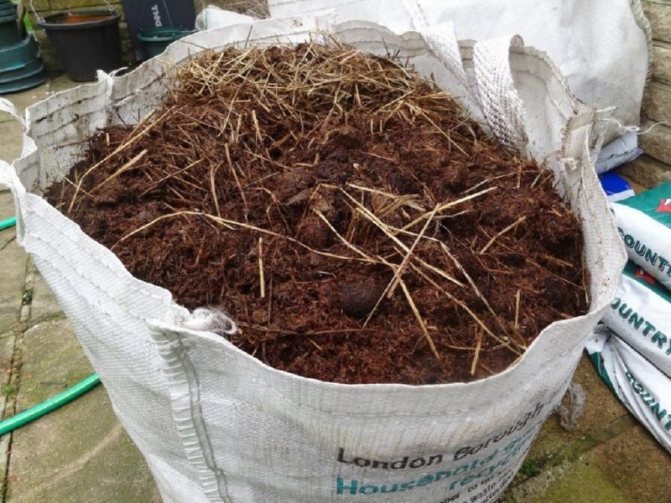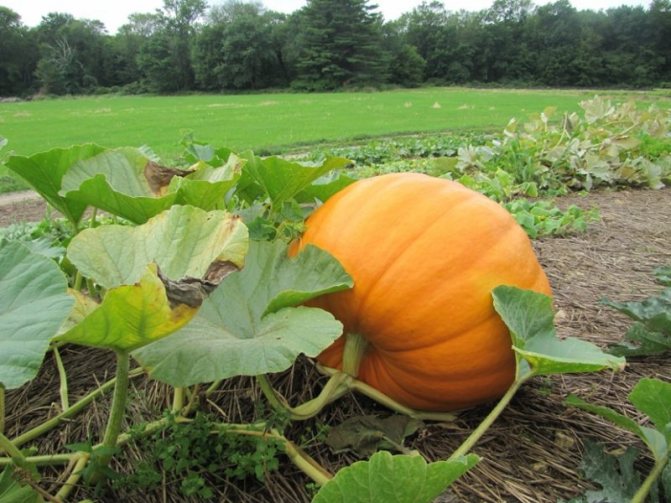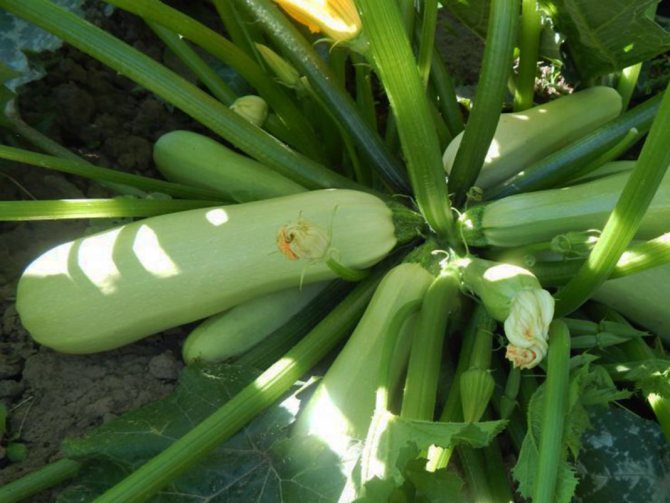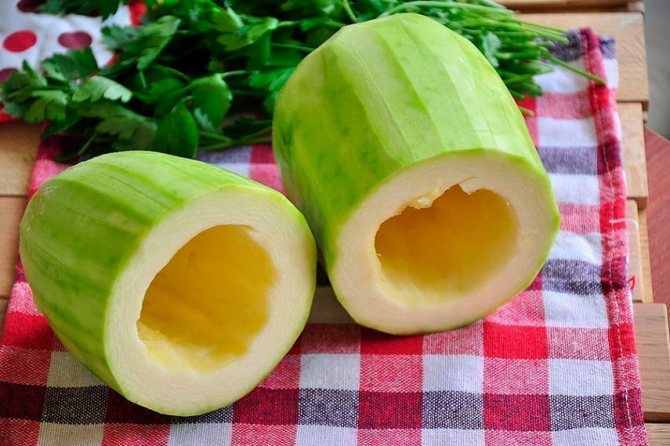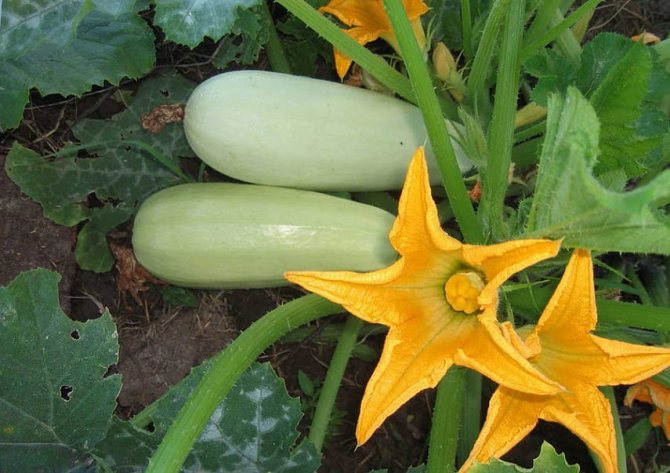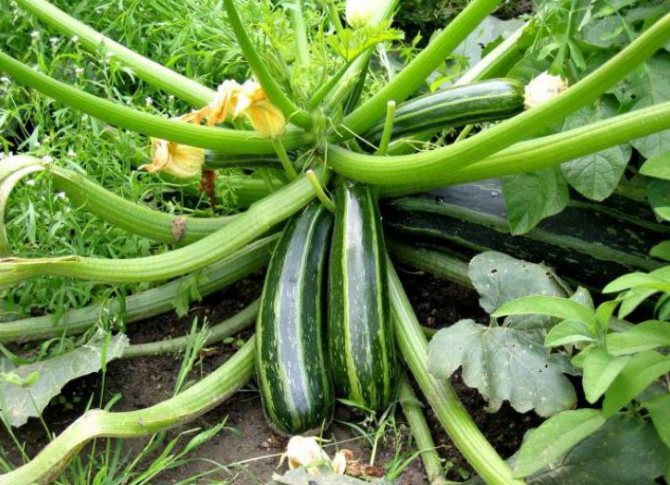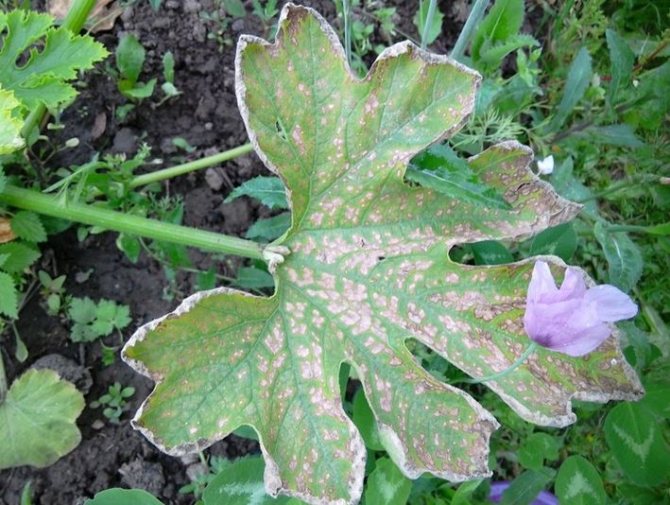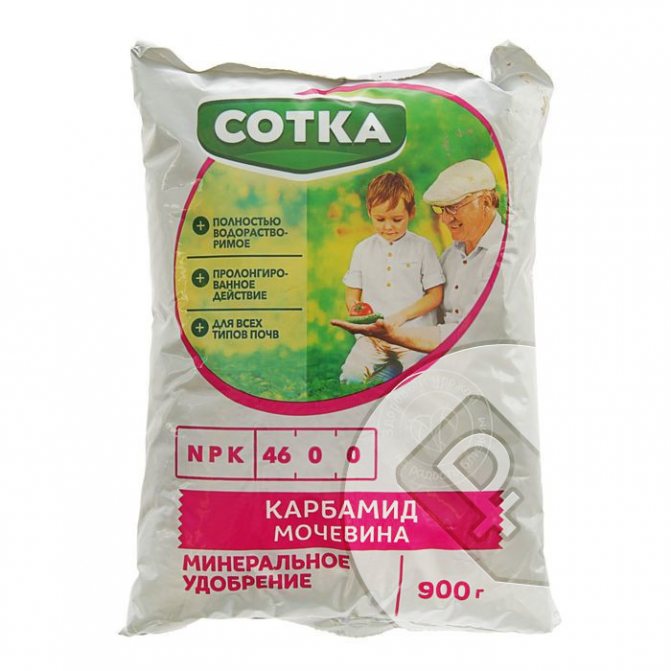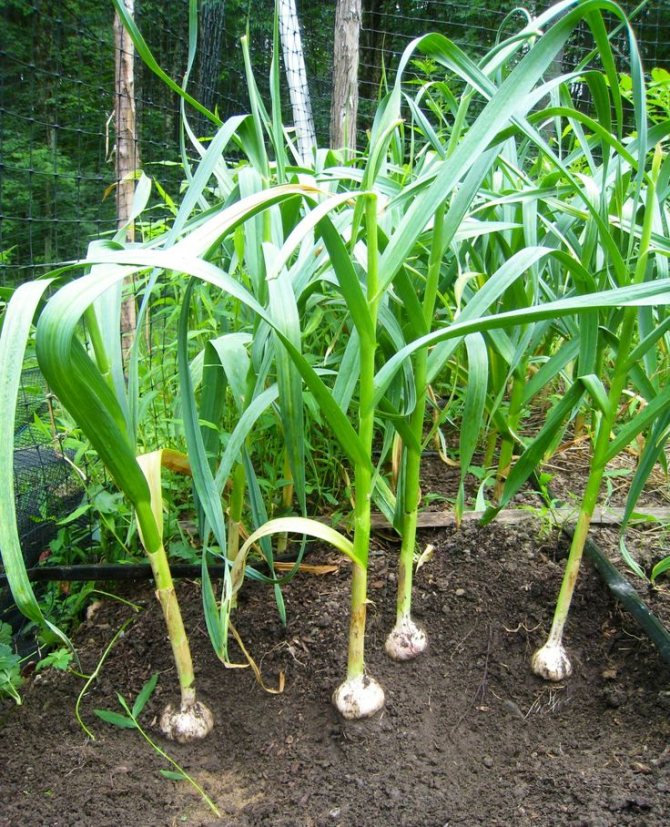Vegetable growing »Zucchini
0
470
Article rating
Zucchini is a culture from the pumpkin family, which can often be found in garden plots. It is often used to prepare various dishes. Sometimes fruits with an unpleasant taste come across. Not all lovers of this vegetable know why bitter zucchini may appear among the harvest.
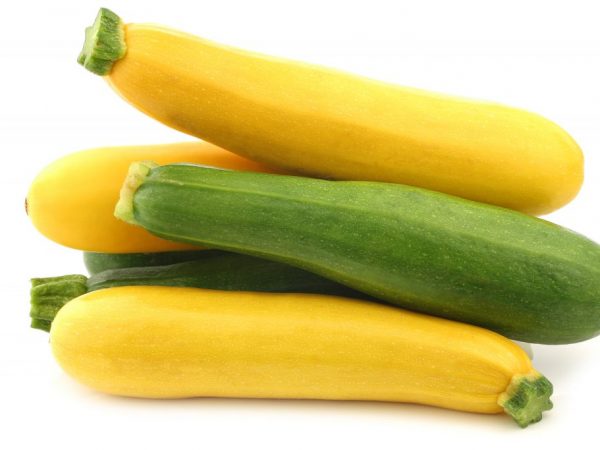
The reasons for the appearance of bitterness in zucchini
Causes of bitterness
Bitterness in vegetables accumulates due to natural characteristics and is inherited. The appearance of an unpleasant taste is due to negative factors that must be immediately dealt with.
The risk of developing zucchini bitterness is affected by poor-quality care during the growth of this crop, so the farmer must first determine the cause, and then deal with it, setting the conditions for the development of the plant.
Insufficient watering
If, during hot weather, you do not water the zucchini with enough water, bitterness appears in them. To preserve the pleasant and delicate taste of young fruits, you need to regularly and in sufficient quantities to water the plants with warm water.
Humidification with cold water slows down development. This leads to the risk of disease and death of the bush. The optimal watering interval should be 3-4 days (if the weather is hot).
During the period of active rains, it will be necessary to irrigate the beds once a week. Under each bush, you need to pour in so much water so that the soil is moistened to a depth of 30-40 cm.
Pollination with other vegetables
If the zucchini is bitter, this is often due to the wrong neighborhood with other agricultural crops. Each plant has its own growing season. During flowering, some crops throw their pollen into the air.
If you plant onions, garlic or tomatoes next to zucchini, the pumpkin variety will constantly accumulate pollen from these vegetables. To reduce the risk of developing bitterness, planting should be done next to cabbage, carrots or potatoes. Only in this case can you avoid the appearance of an unpleasant taste in zucchini.
Excess watering
As described above, insufficient watering contributes to the bitter taste of the pumpkin crop. If you moisturize it too much, an unpleasant taste will also appear. It is forbidden to water the plants so that moisture gets on the leaves. Sun exposure increases the likelihood of developing a bitter and tart taste.
Zucchini should not be watered abundantly in cold weather. during this time they are exposed to many parasites and diseases. Humidification with cold water is not absorbed at all, which is why there are troubles with development and resistance to weather conditions.
Lack of light
Zucchini tastes bitter if it doesn't get enough sun. The main reasons for this are considered:
- dense plantings or excessive proximity to other crops;
- overcast;
- the season when the day is shorter than the night;
- shadow from trees.
To avoid such a problem, you need to adhere to the correct landing pattern. Seedlings are sown in open ground at a distance of 1 m.Over time, when the bushes grow, they will not create a shadow for each other.
Choose for planting areas that are on the south side. So the culture will spend more time under the influence of sunlight.Mature bushes should be pruned regularly. Every month, you need to remove excess foliage so that light penetrates the inside of the bush.
Excess fertilizer
The importance of nutrients to the pumpkin crop cannot be overstated. The amount of fertilizer should not exceed the specified measures, because this causes bitterness in the zucchini. An excess of potassium and phosphorus negatively affects the taste of the fruit.
Sometimes fertilizers are harmful.
So that the excess of nutrients does not violate the taste of the fruit, it is necessary to normalize the process of feeding:
- a few weeks before planting, during the formation of holes, 1 kg of humus is introduced into each;
- at the time of the formation of ovaries, you need to water the plants with a phosphorus solution (30 g per 5 l of water);
- when the bushes bloom, they are fed with a 3% potassium solution (30 g per 10 l of water);
- 3 weeks before harvesting, you will need to apply a nitrogen solution under the root (50 g per 6 liters of water).
Improper storage
The description of the culture indicates that it is allowed to store ripe fruits for no more than six months. With an increase in this period, vegetables will receive less oxygen, especially if you keep vegetables in the basement. It is better to place them on the balcony, which will need to be ventilated regularly.
With long-term storage, the taste of the fruit changes and bitterness appears. Remember not to consume overripe zucchini with an unpleasant taste.
Accumulation of cucurbitacin
Cucurbitacin is a substance that makes zucchini bitter. A feature of pumpkin crops (zucchini, pumpkins) is that the accumulation of cucurbitacin is due to natural phenomena and the genetics of vegetables, but it can also be detected in fruits if they receive poor watering.
Read also: A vegetable garden on sandy soil
The following factors affect the accumulation of cucurbitacin:
- a large amount of moisture in cold weather;
- sudden changes in temperature;
- poor-quality planting bed, in which there are not enough nutrients;
- a large amount of minerals;
- violation of ovaries during harvesting.
Diseases
The main diseases that contribute to the development of bitterness in the fruits of zucchini are fusarium and anthracnose. In addition to the unpleasant taste of vegetables, yellow spots form on the leaves, leading to dryness of the bush. If there is no way to correct the situation and stop the disease, it is better to immediately destroy the diseased bush.
As preventive measures that will help reduce the risk of developing these diseases, certain rules are followed. First, the planting material is prepared. For this, the seeds are disinfected and tempered at different temperatures. Only after these measures can you start planting seeds.
Neighborhood of cultures
In most cases, bitter zucchini in the garden grows when the wrong neighboring plant crops are located near them. Bitterness is manifested as a result of the cross-pollination of related plants. So, zucchini tastes bitter if it was grown near an ornamental pumpkin. Despite its beautiful attractive appearance, it bears fruit with inedible pumpkins, which affect the zucchini flavor. Also, the crop can be bitter if it was grown near the following plants:
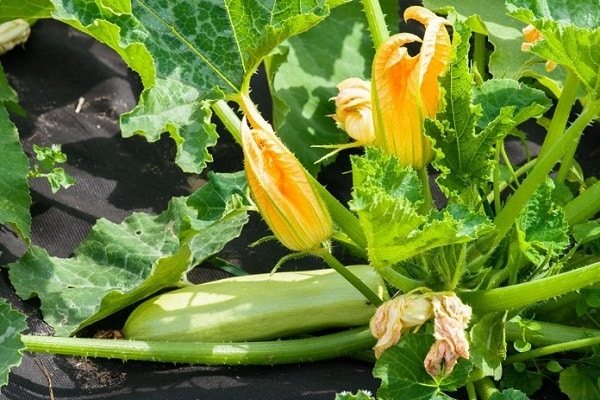

- parsley;
- radish;
- tomatoes;
- cucumbers;
- potatoes;
- radish;
- pumpkins.
To avoid changing the taste of a vegetable, it should be planted in beds located near peas, onions, spinach, and bush beans.
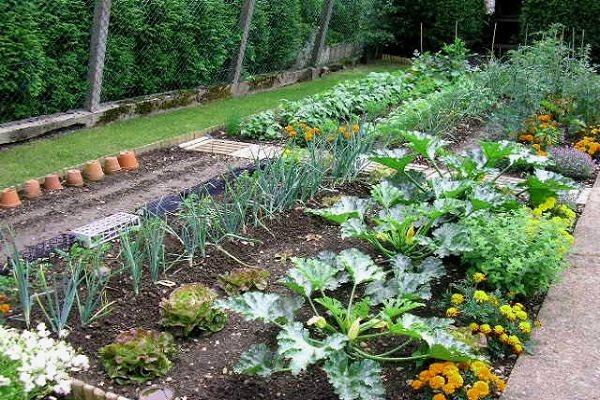

Eating fruits
If you have grown zucchini that tastes bitter, it is not recommended to use them, because this negatively affects human digestion.
Frequent use of such vegetables in the diet threatens the following consequences:
- irritation of the mucous membranes of the oral cavity;
- the accumulation of cucurbitacin in the body can lead to vomiting, nausea, poisoning;
- this substance, if it is in excess, contributes to the occurrence of stomach ulcers and gastritis.
How bitter zucchini affects the body
After you have learned about the true causes of bitterness, it makes sense to consider the effect of such zucchini on the human body. After all, they are used not only by adults, but also by children, the elderly.
- Cucurbitacin is irritating. It negatively affects the mucous membranes of the nasopharynx and oral cavity.
- This substance accumulates in the body if bitter zucchini is consumed regularly. Subsequently, you can earn gastritis or gastric ulcer, 12 duodenal ulcer.
- Cucurbitacin becomes toxic with increasing concentration. It contributes to severe poisoning, nausea, vomiting, dizziness and loose stools.
- Due to the mild irritating effect, these compounds enhance the activity of the secretory glands. Experts say that all this has a positive effect on the bronchi and promotes the discharge of sputum.
To eliminate the bitterness from zucchini, it will be useful to find out the reason for such a nuisance. From here you can conclude how useful the vegetable is for the body. After that, try to get rid of the unpleasant aftertaste in any way described.
Ways to get rid of bitterness when cooking
There is a reliable way to remove the bitterness from zucchini. Cut the vegetable into small cubes or rings (depending on the type of dish you are preparing). After that, dissolve in 1 liter of water 3 tbsp. l. salt and place the chopped vegetable in the liquid.
Leave the zucchini in this state for 30-40 minutes, then rinse and dry. If bitterness remains, refill with saline and extend the holding time. Usually it takes 2 hours to completely remove unpleasant tastes.
How to get rid of bitterness
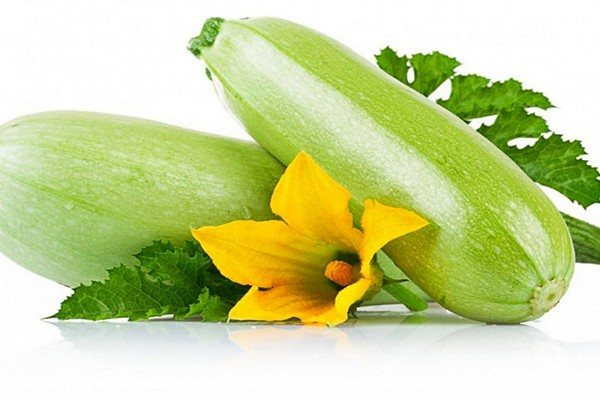

If you really like zucchini and you would like to preserve the harvest, but most or all of the harvest is bitter, then we can offer several simple ways to eliminate this unpleasant fact. Suppose you plucked zucchini from the garden, but you cannot cook it or eat it in any other form due to the presence of unpleasant bitterness in the taste and aroma. What can be done in this case? We start with the fact that the plucked vegetable should be thoroughly washed and cut into small pieces. After that, the vegetable is placed in a bowl, where salt water should be poured next. To prepare a salty solution, you need to dissolve two tablespoons of salt per liter of water. The zucchini should be kept in the resulting solution for about forty-five minutes, after which you will find that all the bitterness and unpleasant taste that were previously available from the vegetable have disappeared. If this is not the case, the slices of zucchini should be kept in a salted solution for a little more time. After this procedure, the vegetable should be washed and dried. Then it can be cooked as you are used to, all unpleasant aspects of taste and aroma will disappear after bathing in a salty solution. A similar method will work the same with a vegetable like eggplant. However, do not think that salt solves all problems, if it occurs to you to salt the zucchini for the winter period without keeping them in the solution for the allotted time, then all your blanks will taste bitter and you will have to say goodbye to them.
Zucchini from the genus pumpkin have the ability to accumulate harmless bitter compounds. Subsequently, these substances make the housewives nervous, since they completely spoil the taste of the finished dish. Bitterness in zucchini is a rare occurrence, but it has a place to be. It is necessary to get rid of such a feature, but first it is worth considering the true reasons. Let's talk about everything in order.
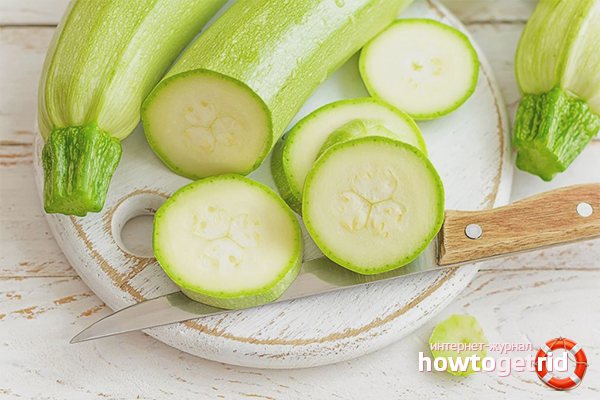

Proper storage
It is allowed to store only those vegetables that were not damaged during harvesting, that is, not only the stalk, but also the peel should be intact.The best temperature for storing fruits is 5-10 ° C.
Canned vegetables can be stored. It should be borne in mind that in the blanks, the bitter taste resembling wormwood does not disappear, you will have to use a saline solution. Only after curing it can the product be used for preservation.
You can store the fruits frozen.
The bitterness that appears in zucchini is common, but there are several methods that can help you not only reduce the risk of bad taste, but also get rid of it. It is enough to determine the reason for which he appeared and try to neutralize it.
Have you ever tasted bitter zucchini? Why does this vegetable have such a property? There can be many answers to this question. We will describe them in detail in the presented article.
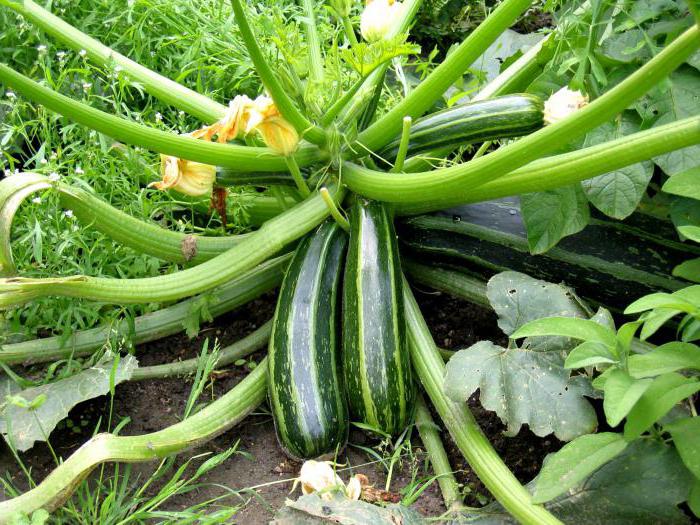

Storage conditions for zucchini
Sometimes the taste of zucchini changes after the harvest. To avoid this, you need to know how to properly store the harvested crop. Storing zucchini of dairy maturity should be carried out at a temperature of 0-2 degrees. In this case, the shelf life of the vegetable is 12-15 days. If you store the crop for longer, you need to be prepared for the flesh to wither, the appearance of rot.
Fully ripe fruits can be stored for 4–5 months. They are required to be laid in a cool, ventilated room. The best option is to locate the crop on the veranda or attic. To eliminate the risk of a bitter taste, as well as the spread of rot, it is impossible to store the crop in the cellar.
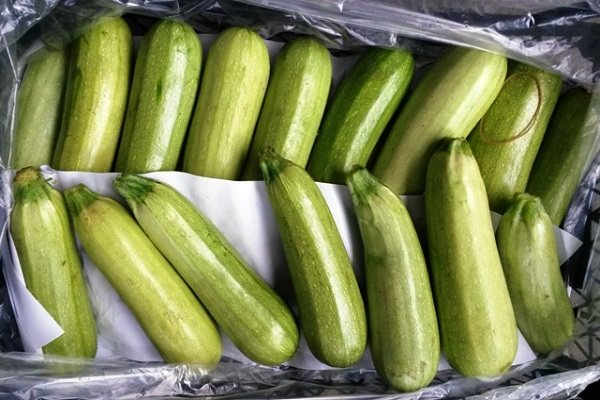

If the summer resident lives in an apartment, you can put the crop on a warm balcony or in a darkened place. Best of all, zucchini retain their taste under the bed, in the closet.
See also
Description of the variety of zucchini Rolik, features of cultivation and careRead
During storage, attention should be paid to the ambient temperature. This is due to the fact that when it rises, the seeds germinate earlier inside the fruit, which provokes the appearance of a nasty bitter taste.
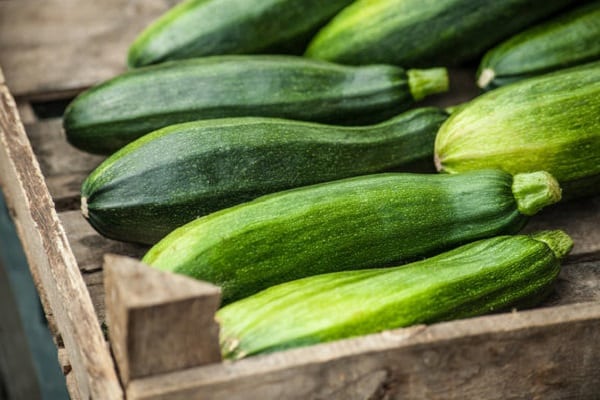

general information
Before answering the question of why zucchini is bitter, you should tell what this vegetable is.
Few people know, but zucchini is a bushy variety of common pumpkin. It has an oblong shape, without lashes. The fruits can be of completely different colors. Zucchini are green, white, yellow and even black. Their flesh is tender and also quick-cooking. Therefore, such a vegetable is very fond of modern chefs.
Zucchini can be used not only boiled, stewed, baked or fried, but also raw. As a rule, vegetables without heat treatment are added to salads and snacks.
Why is bitter zucchini unpleasant? Why is it impossible to eat such a vegetable? If you prepare a dish from a product that has the mentioned property, then it is unlikely that your family members will use it. It's like including wormwood in your diet.
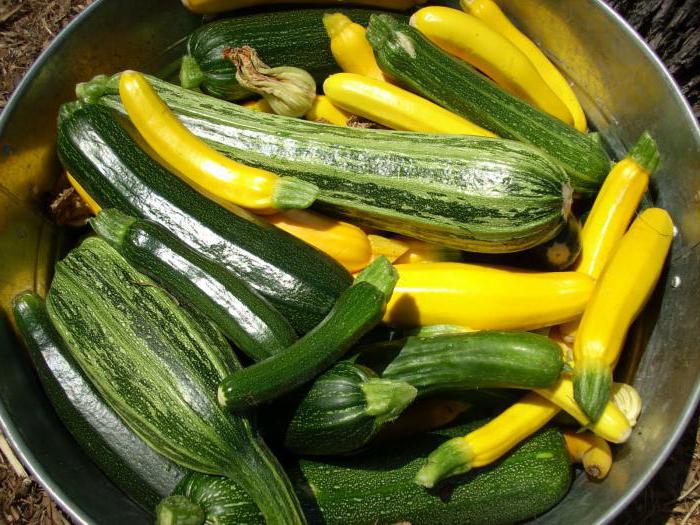

What to do if zucchini is bitter
Is it okay to eat bitter zucchini? If after harvest it turns out that the zucchini is bitter, they can still be used for food, you just need to process them correctly and then you can eat the bitter zucchini. Therefore, the fruit should be cut into small slices or circles and put in salt water for a while. The liquid will remove most of the bitterness from the vegetables and will no longer be felt in cooked foods. After this treatment, the zucchini can be used according to the recipe.
Why zucchini is bitter after cooking and how to remove bitterness
So why are zucchini bitter after cooking? There are only three answers to this question:
- First, the zucchini was originally bitter, as mentioned above. Consequently, the whole dish takes on a special flavor.
- The second option is that another product gives bitterness.For example, quite often you can buy from the market or even grow large hot red peppers on your site, and not sweet Bulgarian. Only one seed in a bag, and a completely different plant is already growing on your site. Outwardly, they are very similar, but hot pepper has a sharp tip. However, if you are handling a lot of vegetables, they can be easily overlooked. So hot pepper gets into the common dish and gives it bitterness and pungency.
- Another cause of bitterness is rancid sunflower oil, which can be used in cooking. Another special flavor can add some seasonings to the dish, so make sure you don't miss the recipe.
If vegetables were grown in accordance with all the rules, then bitterness should not be present in them. In some cases, there is an unpleasant taste if the vegetable is overripe. So, if bitter zucchini - what to do? To get rid of the bitterness, you can resort to a simple trick:
- Rinse thoroughly and remove the skins from the courgettes. Cut the fruit into cubes or circles. Place in a colander, sprinkle with salt. The mineral component promotes the release of juice. Bitterness will come out along with the liquid.
- After 2 hours, rinse the courgettes with running water. This way you can get rid of excess salt. Then start preparing the product according to your own recipe.
You can get rid of bitterness in another equally effective way:
- Place the sliced courgettes in a container.
- Pour 1 liter of water into a container with 30 grams of table salt.
- Press down on the zucchini, everything will be ready in half an hour. In such a decision, the bitterness disappears.
If the zucchini has a slight bitterness or taste, this defect can be hidden with sour cream. The product should be marinated for a while in a milk composition. As a result, zucchini are less nutritious and healthy.
The reason for the appearance of bitterness
For what reason does bitter zucchini ripen in the garden? Why does it have such an unpleasant property? According to experts, the bitterness of such a vegetable lies in the high content of curcubitacin. This is a special substance, which is a complex and nitrogen-free organic compounds obtained from glycosides and of plant origin. It is quite widespread in nature.
Curcubitacins are found in various parts of plants, namely in leaves, roots, stems, flowers, and even fruits.
Thus, to the question of why bitter zucchini grew, one can safely answer that this is due to the special substances that are worn by the lowering of curcubitacin. It should be noted that an increase in their concentration in zucchini may be due to several factors. Which ones, we will tell you a little further.
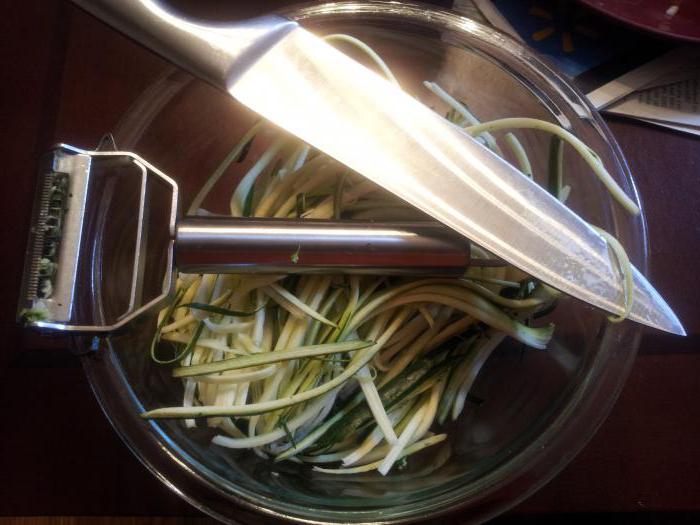

The cause of the bitterness
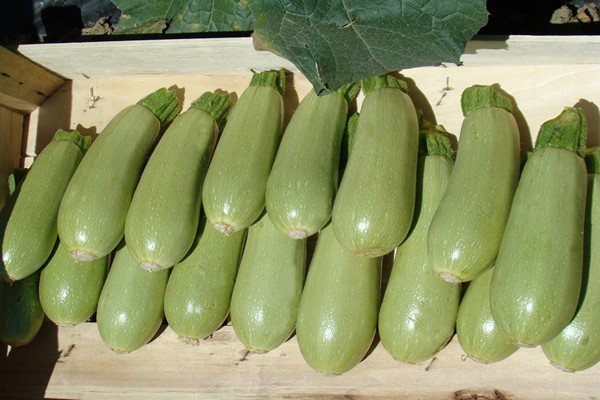

What is the reason for the ripening of such an unpleasant-tasting vegetable? According to experts, the bitterness is due to the high content of a substance such as curcubitin. It is a complex and nitrogen-free organic compound that is obtained from a glycoside of natural origin. This compound is widespread in nature. Curcubitacin is found in different parts of the plant, from which it follows that it can be found in the leaves or stem, as well as in the roots, inflorescences and fruits. So, to the question of why the vegetable is bitter, we can safely answer that this is due to the content of special substances called curcubitacins. Immediately, we note that the increased concentration of these substances in the vegetable can be for several reasons. How exactly, we will analyze below.
Effects on the human body
Now you know why zucchini is bitter, like wormwood. However, it should be noted that most people are concerned not only with the taste of such vegetables, but also with its effect on the human body.
Curcubitacins are known to have a local irritant effect on the mucous membranes of the nose, eyes and mouth.Also, an excess of this substance leads to irritation of the intestinal and stomach mucosa. Curcubitacins can be extremely toxic. They often cause severe nausea followed by vomiting, as well as diarrhea and dizziness.
Read also: How long does wheat germinate
With a mild irritating effect, such substances increase the secretion of all glands. According to experts, this has a beneficial effect on the bronchi (the existing sputum is diluted, which facilitates its evacuation).
From the foregoing, we can safely answer the question of why zucchini are bitter, like wormwood. This is due to the presence of substances such as curcubitacins.
By the way, some plants that contain this element also have medicinal properties. They are often used as hypocholesterolemic and anti-sclerotic, as well as diuretic, corticotropic, adaptogenic, sedative, antiulcer and mild laxative. It should also be noted that the presence of a small amount of curcubitacins in the body makes it easier for other drugs to be absorbed.
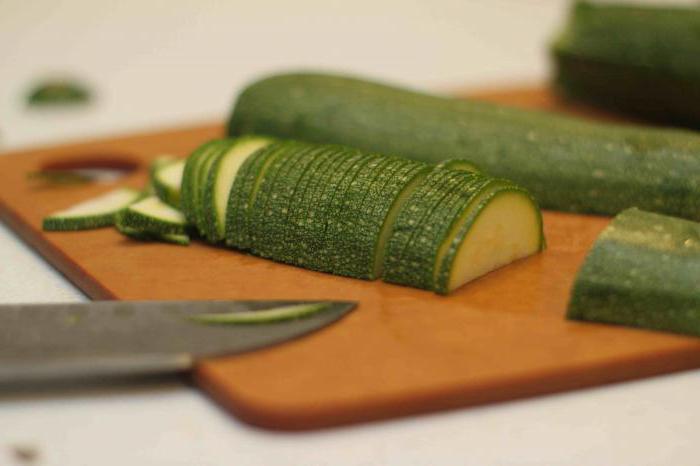

Consequences for the body
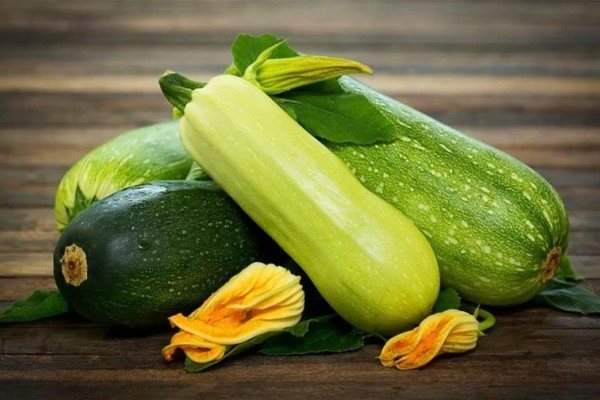

And now that we have figured out why vegetables have a bitter taste, similar to wormwood, it is also worth finding out what effects such a product can have on the human body. Science has long known that curcubitacin has an irritating effect, especially on the mucous membranes of the body. Such as the oral cavity, nasopharynx, intestinal mucosa, as well as the stomach. Curcubitacin can be very toxic. This substance can often cause severe nausea and subsequent vomiting, as well as dizziness and diarrhea. With a mild reaction, this substance causes an increased secretion of all glands. Experts say that this is useful for the bronchi, since the reaction liquefies the existing sputum, and the presence of curcubitacin in the body allows other drugs to be better absorbed. , drugs for ulcers, laxatives, diuretic drugs, as well as adaptogenic and corticotropic drugs.
Transmission with pollen
Why do zucchini get bitter? Breeders have long noted that most pumpkin crops have a substance called curcubitacin. For several decades, they have been working on breeding varieties in which this substance does not accumulate.
However, it should be noted that often there are cases when zucchini growing in the same area (or in the neighborhood) with other plant species are pollinated with them, thereby receiving a certain dose of bitterness.
To protect your crop from such situations, we recommend planting plants in the beds with special care. Ornamental and absolutely not edible pumpkins should not be grown nearby.
Curcubitacin. Reasons for education
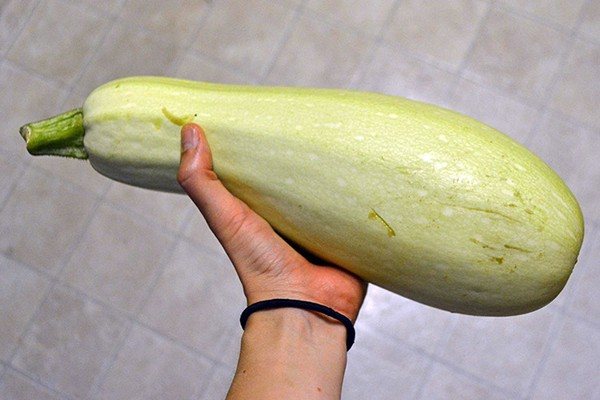

Breeding experts have long sought to breed pumpkin crops with minimal curcubitacin. But situations often arise when zucchini growing nearby or in neighboring areas are pollinated with completely different types of crops, as a result of such pollination, our vegetable receives a certain level of bitterness in taste. In order to avoid such situations, you should plant the seeds very carefully. Ornamental pumpkin crops should not grow near the future harvest. The second cause of bitterness can be the quality and quantity of watering. How often do you water the squash? According to experiments, bitterness in taste can appear and intensify precisely due to insufficient watering or its irregularity. The fact of a sharp change in the humidity regime in the surrounding space can also affect the taste of a vegetable.
Such an example is the situation when there was a long and hot summer, and by the end of the warm period of the year, protracted downpours began.The next cause of bitterness can be the duration of the light interval. The less the future harvest receives solar energy and heat, the more likely the bitter fruit will ripen. For this reason, pumpkin crops are rarely grown in the northern regions of Russia. Also, the reason may be the mineral fertilizers applied for feeding the plant during the period of its active growth. Phosphorus and similar fertilizers can be absorbed very quickly by plants and accumulate in the fruits and body of the plant. So it is highly discouraged to use such fertilizers in beds with all types of pumpkin crops. Thus, you can avoid unpleasant bitterness in the taste of zucchini, as well as create conditions under which the harvest will be more useful and healthy. By the way, nitrogen prevents the formation and accumulation of substances that cause bitterness, but the use of fertilizers with nitrogen in large quantities can be harmful.
Insufficient watering
Why is the zucchini bitter like china? If you are worried about this difficult dacha issue every year, then we suggest remembering how often you water your beds. According to breeders, the bitter taste of the vegetable in question can form due to irregular watering. Therefore, read the instructions for growing this fruit and follow it strictly.
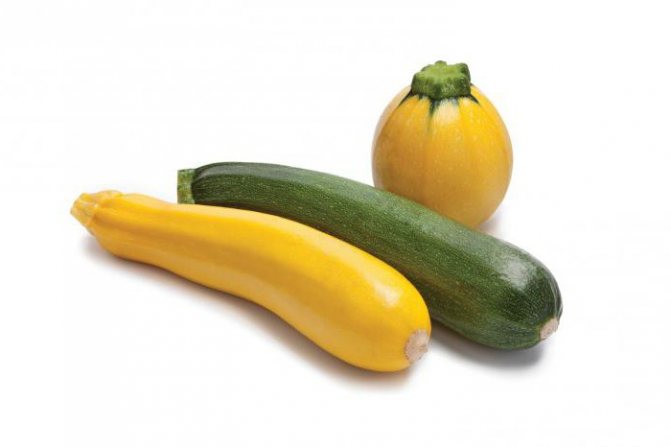

I would also like to note that the taste of zucchini can also be affected by a sharp change in humidity in the environment. For example, if the summer season turned out to be dry, and by the time of harvest, heavy and prolonged rains began.
Watering mode
In addition to the wrong neighbors, other growing conditions can affect the taste of zucchini. Among them, the provision of improper watering is distinguished. If the summer resident moistens the soil without adhering to a certain regime, nitrogenous compounds begin to accumulate in the leaves and fruits of the vegetable, giving them a bitter taste. Also, bitter zucchini squash can grow in case of prolonged rain, which began after a drought.
It is possible to preserve the taste of the vegetable, as well as its useful properties, by properly providing watering of the plant culture. To do this, you must follow the rules:
See also
Description of the zucchini variety Gribovsky, cultivation features and productivityRead


- watering should be done regularly;
- for irrigation, it is necessary to use water that has settled in the sun, while it should not be contaminated;
- young zucchini are watered so that they do not taste bitter, every day until the leaves close, and after they cover the ground, the amount of moisture introduced is reduced.
If the weather is hot, the crop should be watered after 2-3 days. If it is cloudy outside, you will need one watering in 5-6 days. The liquid must be poured under the root, while irrigating the foliage is not recommended. If the greens begin to wither, they need to be watered with a watering can. You can replace it with a hose by putting on a fine mesh nozzle.


Duration of daylight hours
Why are zucchini bitter when frying, boiling or stewing? There are several reasons for such a bad harvest. The most common of these is the length of daylight hours. How is this interconnected?
Scientists have noticed that the presence of curcubitacins in zucchini is directly related to the length of daylight hours. In other words, the less vegetables receive light (in the period from the 2nd decade of August in the middle zone of our country), the greater the likelihood of obtaining fruits with strong and unpleasant bitterness. Therefore, in some regions of our huge country, such a culture is almost never grown.
Eating
If the cause of the unpleasant taste was not a fungal infection of the bush, but a violation of the rules of care, then the zucchini are suitable for consumption.
Read also: How to remove nettles from the site
But in many respects it depends on how bitter the zucchini is. Some vegetables acquire such a strong flavor that they simply cannot be used for food.
If the cause is a plant disease, its fruits may contain high levels of nitrates and toxic substances. Eating these vegetables can lead to poisoning - they are not recommended.
Use of mineral fertilizers
It is not a secret for anyone that such mineral fertilizers as phosphorus and potassium absorb plants and their fruits rather quickly. Therefore, the use of such substances often contributes to the appearance of excessive bitterness in zucchini. By the way, such components not only enhance the accumulation of bitter elements in vegetables, but also make them dangerous to human health and life. In this regard, it is highly discouraged to grow zucchini using mineral fertilizers. So you will not only avoid the appearance of bitterness in them, but also make your harvest tasty and healthy.
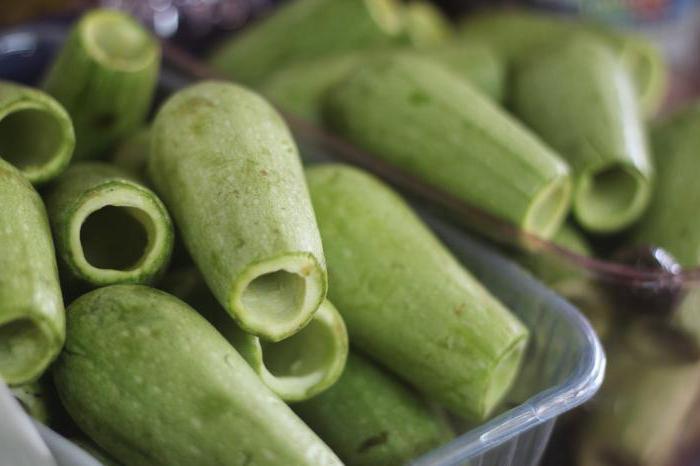

By the way, nitrogen, on the contrary, prevents the appearance of bitter taste in almost all vegetable crops. However, using it in large quantities is also not recommended.
What makes zucchini bitter?
The main reason why zucchini tastes bitter is that cucurbitacins accumulate in them. These substances accumulate in all crops belonging to the pumpkin family.... Basically, a plant culture begins to actively accumulate such substances when extreme conditions are formed, for example: with a lack or excessive amount of water and nutrients. Also, a change in the quality of zucchini, the appearance of a bitter taste may be due to damage to the plant by various pathologies, growth in low light conditions.
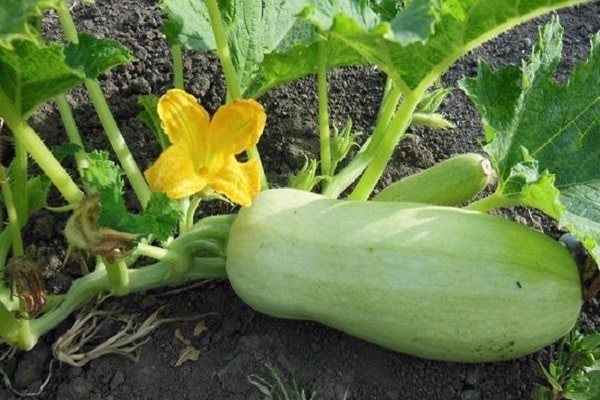

Cucurbitacins are not toxic substances. Interestingly, they are even useful. These substances have a directed effect against tumors and parasites. Due to these properties, cucurbitacins are used in traditional Indian and Chinese medicine.
Despite this, if zucchini is bitter, many summer residents are in no hurry to eat and serve them, in this case, you need to know in advance about the factors affecting the change in the taste of the vegetable in order to avoid their appearance.
How to remove existing bitterness?
If you are a big fan of your own grown zucchini, but your crop failed due to the presence of bitterness in it, then we suggest using a simple advice to eliminate this property.
So, you plucked zucchini, but you cannot eat it or include it in any dish, because it has an unpleasant taste and aroma. What to do in this case? To begin with, the vegetables should be thoroughly washed and chopped into the necessary pieces. After that, the product must be placed in a bowl, where in the future it is necessary to pour salt water. Such a solution should be prepared based on the calculation: 2 large tablespoons of table salt per 900 ml of liquid.
After keeping the zucchini in water for about 35-45 minutes, you will notice that all the bitterness has gone from them. If the unpleasant taste still remains, then the vegetables can be left in the bowl with the solution for some more time. After that, the product is thoroughly washed and dried. Further, it is used for its intended purpose.
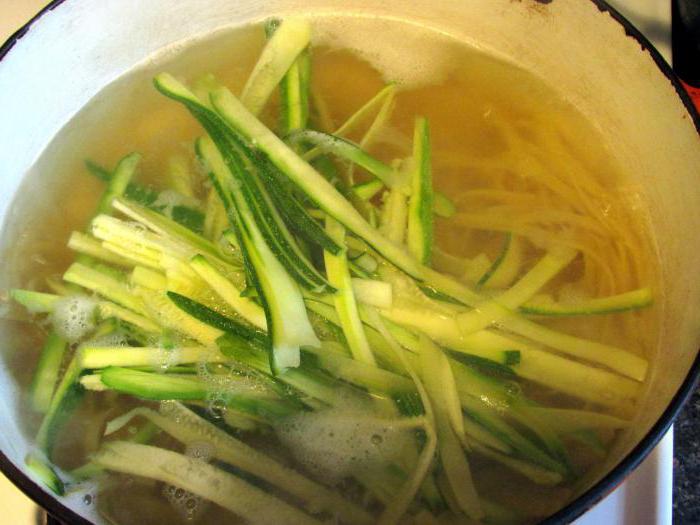

Thus, by applying a salty solution, you can rid your crop of any degree of bitterness. It is exactly the same with eggplants. By the way, some housewives believe that tasteless zucchini will taste less bitter if they are salted or pickled for the winter. It is a myth. If you do not use salt water, then all your blanks will have to be thrown away, as they will have an unpleasant taste and aroma.
Zucchini is widely used in dietary nutrition, but not everyone considers them very tasty. Sometimes you have to force yourself to eat dishes made from zucchini, but the trouble is that sometimes these vegetables are very bitter, and then no persuasion will help.Bitterness appears in fruits for a variety of reasons.
The defeat of zucchini with Fusarium
The bitterness of zucchini can cause fusarium wilting, a fungal disease that disrupts the processes of photosynthesis and plant nutrition. This disease often affects pumpkin crops and leads to wilting of leaves, slowing down of fruit development and even the death of plantings. Zucchini can grow weak, misshapen and bitter as a result of Fusarium infestation.
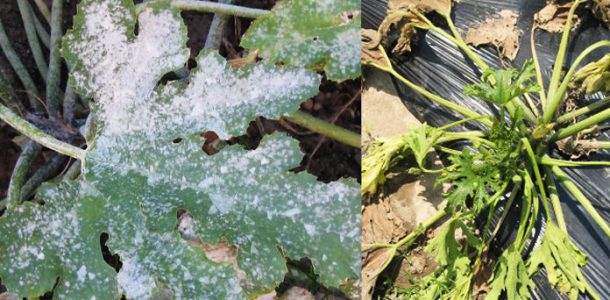

The complexity of this disease lies in the fact that it cannot be treated, so it is important to remember about its prevention: observe the rules of crop rotation, destroy weeds and plant residues after harvesting, replace the contaminated land in the beds and in greenhouses with healthy ones.
Why zucchini grow bitter, ways to solve the problem
Bitterness is inherent in any pumpkin crops, and even cucumbers, since they contain specific substances - cucurbitacins. Under normal conditions, their content is negligible and the presence is imperceptible, but under extreme conditions, these compounds begin to form so much that zucchini can become bitter, like wormwood.
Read also: Autumn soil cultivation with copper sulfate
Watering problems
Zucchini consume a lot of water, because their leaves are huge, and the pulp of the fruit contains a lot of moisture. Therefore, it is impossible to grow tender zucchini without sufficient watering. It is especially bad if it is not possible to water the plants in time in extreme heat conditions: at this time, even one watering per week is often not enough. And it is very bad if watering is carried out with cold water. Plants react to all these stressful situations with a sharp increase in the production of cucurbitacins, the fruits begin to approach the taste of wormwood.
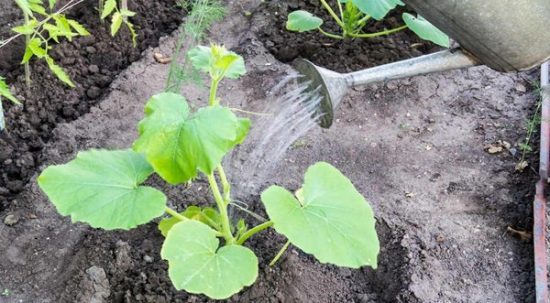

Water the zucchini with a gentle stream, without falling on the leaves
When watering, it is necessary to calculate the amount of water so that it flows to the roots, that is, moistens the soil to a depth of 40 cm. But excessive water intake is also dangerous, especially at low temperatures and with significant contact with the leaf apparatus. Waterlogging of the soil does not allow oxygen to penetrate to the roots, diseases begin, and the fruits that have arisen acquire strong bitterness. If diseases such as anthracnose or fusarium have appeared, it is necessary to save the plants as soon as possible, there is no time for bitter fruits.
Wrong garden neighbors
Many crops are capable of cross-pollination, that is, the flowers of one plant can be pollinated with the pollen of a completely different vegetable. This happens especially often in the case of close relatives (bitter and sweet peppers are not planted nearby), but pollination is also possible with completely unpredictable plant variants. For example, zucchini can taste bitter if tomatoes, onions, or garlic are growing nearby. Optimal neighbors for zucchini are carrots, potatoes, various types of cabbage.
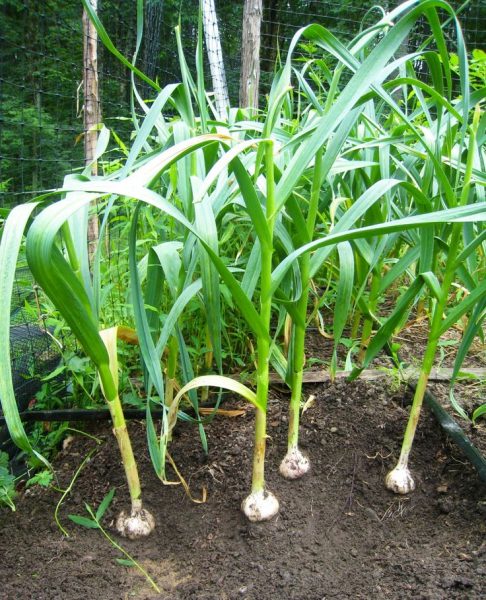

Garlic is an unwanted zucchini neighbor
Lack of lighting
Zucchini can grow in partial shade, but they prefer lighted areas: only with enough sunlight, the fruits grow tender. If the majority of the time the plants are in the shade of a house or trees, and even if the weather is rainy for several days in a row, the sun does not appear because of the clouds, bitterness appears in the fruits. Even with too dense planting, the shadow from neighboring bushes can interfere with the normal development of zucchini: the distance between the bushes should be at least 70-80 cm. Partially pruning old leaves can help alleviate this shading problem.
Incorrect feeding
Zucchini grow well only on fertile soil, require periodic feeding. But in the case of an excessive amount of nutrients, they cannot assimilate them correctly and react with the release of cucurbitacins. It is necessary to feed the zucchini with a complex of nutrients, but when planting, organic matter is more desirable, at the beginning of the setting of the first fruits, mainly potash and phosphorus fertilizers are applied, and if the bushes have slowed down their growth and weakened fruiting, they try to support them with small amounts of nitrogen.
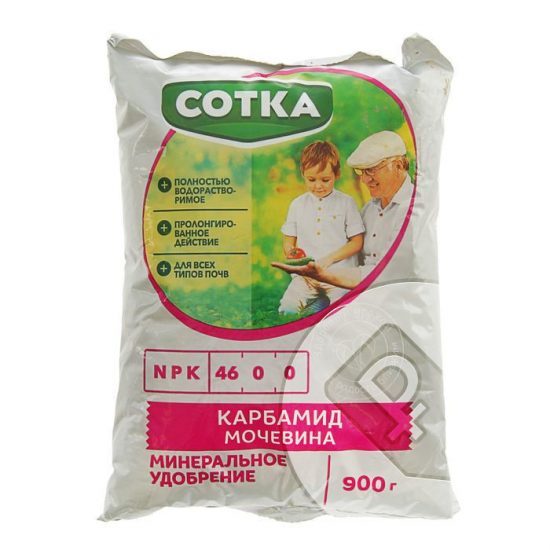

Small amounts of urea can support the vigor of the plant without adding bitterness to the fruit.
Incorrect storage
If you store zucchini in the wrong conditions, bitterness can appear over time.This happens especially often at low temperatures: these vegetables are better stored indoors than in a cold cellar. Many varieties are capable of lying for up to six months, but the room must be ventilated.
Why zucchini are bitter when cooking. Why are zucchini bitter: reasons
One of the reasons why bitter squash is due to excess phosphorus and potassium, both in the soil and in plants. Curiously, excess nitrogen reduces bitterness. However, the reaction to cucurbitin differs from variety to variety, for example, "Zolotinka" is more inclined to impart a bitter taste than "Gribovskiy 37". The number of factors also includes the growth process of the fetus - in cases where they lie in the sun for a long time, the likelihood of bitterness increases. For example, first year plants are more prone to the formation and accumulation of cucurbitin, while plants grown from their seeds show less of this trait.
How the accumulation of the bitter substance is activated:
- excessive watering;
- overfeeding with fertilizers;
- lack of lighting, illness.
Zucchini perceive drought especially sharply, even if we consider that they are moderately moisture-loving plants. In the absence of irrigation for a long time, they begin to produce and store large amounts of nitrogen and nitrate compounds.
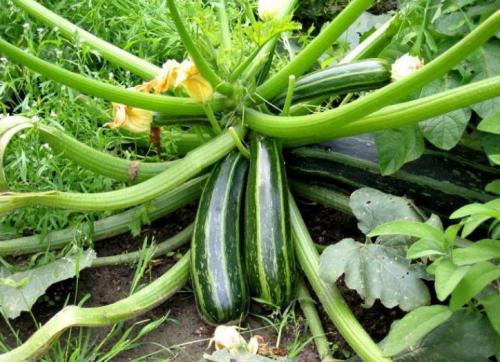

Daylight hours are the second reason for the appearance of bitterness. Zucchini's taste is influenced by the length of daylight - the less sunlight a plant receives, the more likely it is to start producing cucurbitin. Try to plant the squash in well-lit areas where they won't be shaded. In addition, you regularly need to pinch and dive the plantings so that a natural shadow from the plants is not created.
Zucchini is a bushy variety of common pumpkin. The vegetable is distinguished by its oblong shape and the absence of loops. Fruits can be of almost any color: green, white, yellow. Zucchini flesh usually has a delicate flavor.
Have you come across bitter zucchini? Well no
With insufficient watering, the bitter aftertaste of zucchini increases:
- However, when over-watered, they have the same properties.
- In addition, the abundant use of moisture makes the zucchini more vulnerable to fungal microflora and can cause disease with powdery mildew, downy mildew, root, gray or white rot.
- During dry periods, try to water the zucchini as often as possible, but do not pour water directly on the leaves! Watering with warm water is best done in the early morning or evening, when the heat fades away.
Expert opinion Filatov Ivan Yurievich, private farmer for over 30 years Zucchini need fertilization. Excess potash and phosphorus fertilizers play a role. Try to maintain a normal balance of these minerals, for example, balancing nitrogen fertilizers or using organic fertilizers. Feed the plants with iodine, yeast, boric acid to restore the plant's familiar taste.
Zucchini is less common because of diseases. Fusarium, anthracnose are manifested not only in pathological changes in the color and structure of zucchini leaves, but also in the taste of fruits. Urgent treatment should be done in such a way that vegetables can be safely eaten and plant seeds used the next year. In addition, do not forget about the prevention of diseases, since they pose a danger not only to vegetables, but also to the human body.
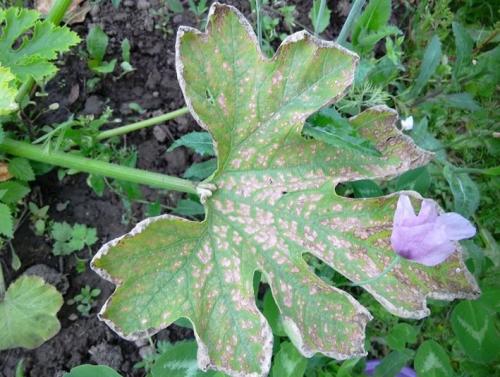

Reviews of gardeners
Degeneration. Wild forms are automatically bitter. So these are seeds, nothing to fix. And yes, cucurbitacin causes a loosening of the intestines.
Guest 385
Zucchini can sometimes taste bitter due to growing conditions, water supply, lighting. If the soil is fertilized with nitrogen fertilizers, then the likelihood that the zucchini will taste bitter will be significantly reduced. And you can eat such zucchini.In order to remove the bitterness, dip the sliced zucchini in salted water for a while.
Biolife
The summer was hot, and the zucchini could have few male flowers. This meant that the bees had to pollinate the zucchini with pollen from other pumpkin plants, for example, pumpkins or cucumbers.
Yulia
This year, the zucchini did not taste bitter for the first time, I think this is because I watered them with incredible frequency and covered them with leaves from direct sunlight, cut them off when they were of medium size, I did not wait for large taverns.
Ulyana
Bitter zucchini grows when there are obvious problems in the garden. There are several reasons for this phenomenon, it is better not to wait for their manifestation, but it is almost always possible to eliminate it. Until autumn, you can still have time to get a lot of delicate fruits.
Bitter zucchini poisoning. Bitter cucumbers and zucchini can cause food poisoning
Cucumbers, squash and other members of the pumpkin family are very popular and are used in a variety of dishes and salads. They occasionally have a bitter or metallic taste. Bitterness is caused by a group of compounds called cucurbitacins, which are naturally produced by the plant. The higher the cucurbaticin level, the stronger the bitter taste of the squash, cucumber, or melon will be. And these compounds are not just bitter, they are toxic and can cause food poisoning, symptoms of which include nausea, stomach cramps, diarrhea, and vomiting. Cases have been reported of these symptoms occurring 1 to 2 hours after taking just 3 g of zucchini, so feel free to skip the good manners if you come across a bitter vegetable.
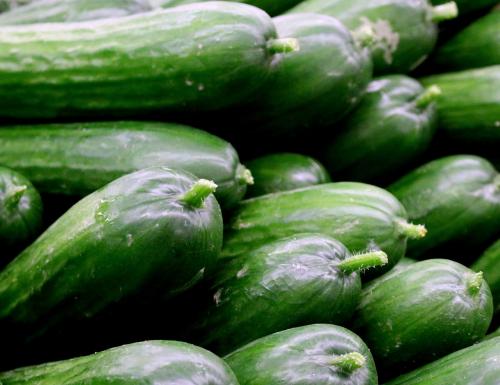

The wild varieties of these vegetables usually contain more toxin and are very bitter, and the cultivated forms, that is, those that are sold in grocery stores or grow in our beds, have been selected and should not produce toxins. However, from time to time, these plants mutate and restore their natural ability to produce cucurbitacins at dangerous levels.
Rely on your taste buds
Poisonous zucchinis, cucumbers and melons look exactly the same as non-toxic ones, so you won't be able to tell by sight how bitter vegetables will be. There is only one way to determine if food is causing the poisoning - to try.
It is enough to cut off a small piece of cucumber and lick it. Cucurbitacins are very bitter, so that's enough to tell if it's a good product or should be thrown away right away.
Lighting and rules for feeding zucchini
Another reason why zucchini are bitter is the improper feeding of the plant, as well as the lack of optimal lighting conditions. Zucchini are very sensitive to light, therefore, to grow them, you need to select a place in the country, located on the sunny side. At the same time, there should be no drafts and strong winds in the selected area. Also, the fruits can react sharply to a decrease in daylight hours.
In addition to lighting, zucchini needs to provide proper fertilizing with fertilizers. In this case, fertilizers should be applied throughout the growing season. The plant culture responds best of all to the introduction of organic substances. Providing a similar feeding of zucchini, they form large fruits and are actively developing.
As a fertilizer, it is advised to use mullein diluted with water, as well as a three-day fermented herbal infusion. When the plant begins to form ovaries, it is recommended to add superphosphate and wood ash to the fertilizer. Care must also be taken during fertilization. This is due to the fact that an excess of phosphorus and potassium can also change the taste of the vegetable.

